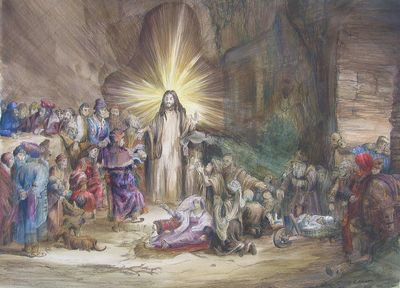Seventh Sunday after Pentecost
Where does power come from? The usual answers—family connections, reputation, possessions—are all rejected in this reading from Mark’s gospel. Jesus’ power is not only independent of his family connection—it is hindered by it. While it isn’t entirely clear why the people of Nazareth reject Jesus, the fact that they do may sound familiar to us. How often do we find exactly what we expect when we encounter something new? How open are we, really, to the possibility that God’s power might come from an unexpected corner? The first part of today’s reading suggests that even miracles take two things: both divine power and willing witnesses.
Perhaps Jesus sends his disciples out stripped of their possession precisely so that they are ready to witness to God’s power in a new way. They go without any of the usual trappings of security or wealth, with no guarantee that their ministry will be received. In fact, Mark reminds us a few verses later (Mark 6:14-28) just how hostile the world can be to receiving the proclamation of the kingdom of God. John the Baptist will lose his life because of Herod’s resistance to repentance. Nevertheless, Jesus’ teaching continues to astound, and the word continues to spread.
The willingness to bear witness, even when we are not certain of answered prayer or mission success, is a theme that unites all this day’s readings. Even the Psalm, in its simple gaze of faith, invites us to let go of results in favor of relationship. Paul’s sometimes confusing logic about spiritual experiences becomes clear as he sums up God’s word to him: “My grace is sufficient for you . . . .” That is a powerful word, which can make almost any experience an opportunity to witness to Christ’s power.
©2024, Sundays and Seasons, a div. of Augsburg Fortress.

